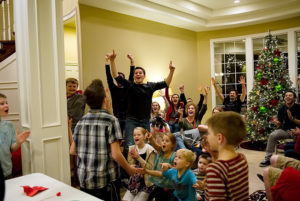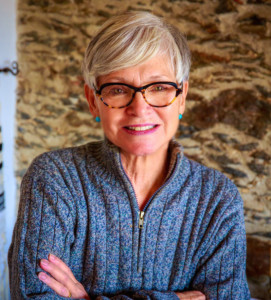 Note: This article first appeared in the Bradenton Herald, Bradenton, Florida. I encourage you to share these thoughts with your Christian friends
Note: This article first appeared in the Bradenton Herald, Bradenton, Florida. I encourage you to share these thoughts with your Christian friends
“It’s the time of year when the world falls in love…” Beautiful words for a beautiful time. Christmas time. Not my time of the year but I like it just the same. Surprised? I’m sure some of you must be, especially since I’m Jewish and not only that, I’m a rabbi as well.
That being said, I want to tell you two things. First, Jews don’t dislike Christmas. And second, even though we don’t observe the holiday, we are glad that Christians do.
December has always been a challenging time for me as a Jew and as the mother of a Jewish child. Anyone who is a member of any minority group probably will tell you the same thing. It’s sometimes very hard to be different. At Christmas, Jews are part of a tiny minority of people who often do not embrace practices and customs that almost the entire country has adopted and made into a national tradition. We’re on our own, celebrating Chanukah, which is a minor Jewish holiday, while we’re exposed, for weeks on end, to the hoopla surrounding the observance of another religion. For our children it can be confusing. For us grown-ups it can be exhausting. But for the most part, we Jews aren’t mad about it. Many of us enjoy being guests at your party.
And that’s how I approach the “December Dilemma” with my family. In his book, “The Art of Jewish Living,” Dr. Ron Wolfson comments on toddlers and how they behave at birthday celebrations. When the cake is brought to the table, all the other children try to blow out the candles along with the birthday boy or girl. As the gifts are opened, each child reaches for the toys. Wolfson tells us that that’s why party favors were invented. To teach children the important lesson of “This belongs to you and that belongs to her.” Children learn the difference, Wolfson says, between celebrating one’s very own birthday and celebrating another’s.
Wolfson applies this message to Jewish families and Christmas. Christmas is someone else’s party, not ours. Just as we can appreciate someone else’s  birthday party, just as we can admire the gifts and decorations, just as we can eat the cake and maybe even take a token gift home with us, and, most important, just as we can be happy for them, so too, can we marvel at the beauty of the Christmas season. But it is not our party. It belongs to someone else.
birthday party, just as we can admire the gifts and decorations, just as we can eat the cake and maybe even take a token gift home with us, and, most important, just as we can be happy for them, so too, can we marvel at the beauty of the Christmas season. But it is not our party. It belongs to someone else.
As I walk around the mall,scoot into the grocery store, and pop into the dry cleaners, I notice something interesting about the Christmas season. Most people are in a good mood. They’re dropping dollars into the Salvation Army kettle, they’re filling “Adopt A Family” food baskets, they’re more patient with their kids and they’re smiling at one another. There is less violence on television and more “family specials.” The songs on the radio share thoughts of peace, brotherhood and good will.
If the national focus on Christmas is responsible for this annual positive change in behavior, then I’m all for it.
It’s ironic but when it comes to Christmas, religious Jews and religious Christians agree on one very important idea. When we hear our Christian friends say, “It’s time to put “Christ” back into Christmas,” we understand what they mean. Like them, we feel that when a religious holiday is secularized, when commercialism takes the place of religious observance, and when it’s more about stuff than substance, then we are all hurt. Christian families are hurt by the assault of the secular on the religious. Jews are hurt because it becomes easier to adopt holiday rituals when those rituals have lost their religious significance and now appear to be neutral.
So what do we do about Christmas? For many Jews we appreciate your invitations to join you for neighborhood parties and share in holiday gift exchanges.  We like it when you send us a Chanukah greeting or a card that wishes us “Happy Holidays.” And when you sing carols around the piano, we’re not offended. It’s your party. If we’re friends or even family members, we’re happy you asked us to join you.
We like it when you send us a Chanukah greeting or a card that wishes us “Happy Holidays.” And when you sing carols around the piano, we’re not offended. It’s your party. If we’re friends or even family members, we’re happy you asked us to join you.
It can be awkward if you ask our children if they’re waiting for Santa. Instead, if you’re not sure whether a child is Christian, Jewish, Buddhist, Muslim, or something else, you might say instead, “What do you like best about this time of the year?” And if you want to give a present, that’s fine. It’s just like a party favor. We all enjoy taking them home.
So, to all our friends in the Christian community, we Jews wish you a happy holiday season. We wish you and your families a season of peace, understanding and joy. For these are the very same things we pray for in our synagogues each week and work toward in our Jewish communities every day. Our families join yours in the belief that love for and peace between all people can happen in our time. And we applaud your celebration of values and ethics that apply to all people of goodwill everywhere. Merry Christmas and Happy Holidays!

